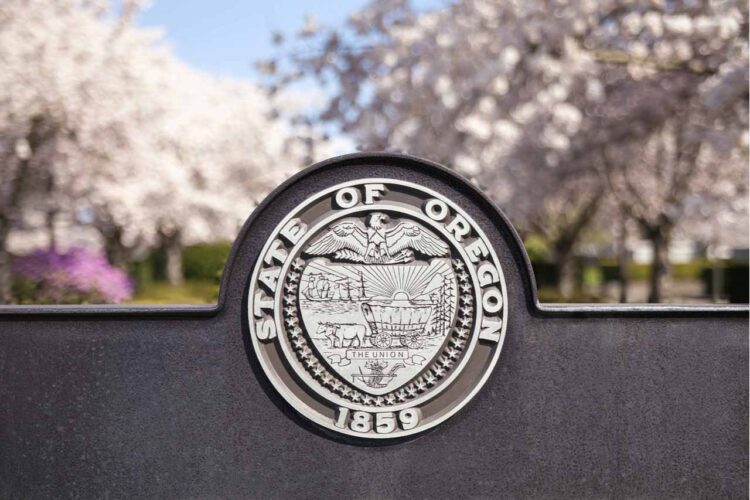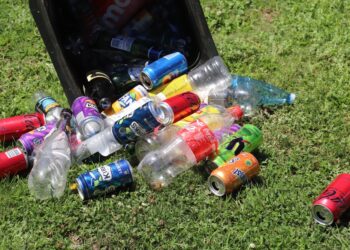Editor’s Note: EPR compliance will be featured in sessions at the 2026 Resource Recycling Conference, Feb. 23-25 in San Diego, California.
In a lawsuit against Oregon’s Department of Environmental Quality, the National Association of Wholesaler-Distributors trade association claims the state’s new packaging EPR law is overreaching, ineffective and unconstitutional.
The suit was filed in federal district court last week, including a request for the courts to file an injunction preventing the state from enforcing the law. The lawsuit criticizes the EPR program’s impact on distributors, especially those located outside of Oregon.
Oregon’s Plastic Pollution and Recycling Modernization Act, or SB 582, was passed in 2021, and started requiring participation from producers last month. As of July 1, SB 582 is the first packaging EPR program in the country to fully go into effect, requiring any company that sells, offers to sell, or distributes products within the state to register with the Circular Action Alliance (CAA), a producer-led nonprofit and the state’s producer responsibility organization (PRO), which administers the EPR program.
The lawsuit cites the Dormant Commerce Clause of the Constitution, which implies that only Congress can control the flow of commerce across state lines. According to the NAW, the state is acting outside of its authority and attempting to control interstate commerce by including out-of-state distributors in the program.
The lawsuit also claims the law breaches the economic freedom and due process rights of its targeted producers by forcing them to work with a private entity.
“While NAW supports the goal of a circular economy, the Oregon EPR law as enacted is unconstitutional, creates new mandates, inhibits interstate commerce and fails at its primary goal of encouraging circularity,” NAW President and CEO Eric Hoplin said in a press release.
On the law’s fairness, NAW claims SB 582 gives too much power to CAA without sufficient oversight from the government or guidance from the law itself. In the press release, NAW said the Circular Action Alliance has a “financial interest in the program”.
The lawsuit claims the program requires packaging producers to financially contribute to packaging recycling with insufficient transparency and input in how the PRO fulfills its duties. Under SB 582, the PRO operates according to a plan reviewed and approved by the Department of Environmental Quality.
“Rather than encourage sustainability through a uniform and transparent system where compliance burdens are shared across industries, Oregon chose to shift the burden to the parts of the supply chain that have little to no control over decisions to design, reduce, reuse or recycle a product,” Hoplin said in the press release.
The inclusion of distributors in SB 582 is an intentional part of the law’s goal of targeting all parts of a product’s life cycle, regardless of its state of origin.
On the environmental impact of unsustainable packing practices, SB 582 says “It is necessary to adopt a policy that will minimize such unintended consequences across the entire life cycle of products and that will require producers of packaging and printed paper sold or distributed in Oregon to help finance the management of, and ensure an environmentally sound stewardship program for, their products.”
Oregon’s Department of Environmental Quality did not respond to Resource Recycling’s request for comment. The district court has yet to hear or respond to the NAW lawsuit.

























